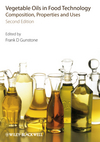Olive, Sunflower Oils May Make Fried Food Healthier

However, the investigators stress that their findings, from studying the typical Spanish diet in which these "healthy" oils are found in abundance, do not apply to lard or other cooking oils.
When food is fried it becomes more calorific, because the food absorbs the fat of the oils. Experts know that eating lots of fat-laden food can raise blood pressure and cause high cholesterol, which are risk factors for heart disease.
For the study, the researchers at the Autonomous University of Madrid surveyed 40,757 adults about their diet. The participants were asked about what types of food they ate in a typical week and how that food was prepared and cooked.
None of the adults had any sign of heart disease at the start of the 11-year study, but by the end of it, 606 heart disease events and 1,134 deaths had occurred.
When the researchers looked at these heart events in detail, they could find no link with fried food in the diet.
This, they believe, is down to the type of oil the food is cooked in. This was a study of a Mediterranean diet rather than British fish and chips”
In an accompanying editorial, Professor Michael Leitzmann from the University of Regensburg in Germany said, "Taken together, the myth that frying food is generally bad for the heart is not supported by available evidence.
"However, this does not mean that frequent meals of fish and chips will have no health consequences.
"The study suggests that specific aspects of frying food are relevant, such as the oil used, together with other aspects of the diet."
Mediterranean diets have long been hailed as healthy, being packed full of low-fat, high-fiber fresh fruits and vegetables, as well as fresh fish.
Numerous studies have shown a balanced diet such as this can cut the risk of illnesses like cancer and heart disease.
Victoria Taylor, a senior heart health dietitian at the British Heart Foundation, said, "Before we all reach for the frying pan, it's important to remember that this was a study of a Mediterranean diet rather than British fish and chips. Our diet in the U.K. will differ from Spain, so we cannot say that this result would be the same for us too.
"Participants in this study used unsaturated fats such as olive and sunflower oil to fry their food. We currently recommend swapping saturated fats like butter, lard or palm oil for unsaturated fats as a way of keeping your cholesterol down and this study gives further cause to make that switch.
"Regardless of the cooking methods used, consuming foods with high fat content means a high calorie intake. This can lead to weight gain and obesity, which is a risk factor for heart disease. A well-balanced diet, with plenty of fruit and vegetables and only a small amount of high fat foods, is best for a healthy heart."
From the January 27, 2012, Prepared Foods' Daily News.
Looking for a reprint of this article?
From high-res PDFs to custom plaques, order your copy today!







